The Public Sector Service Design Kit is PPL’s methods card deck, highlighting twenty-five of the key approaches that PPL teams use on projects. The full deck is available on our merch store. We also plan to refine the deck and add more methods soon.
The kit is made up of twenty-five cards divided into the five phases of a PPL project: Plan, Research, Design, Deploy, and Scale. Each phase has five cards introducing methods commonly used in that phase, though many can be used across multiple phases.
You can download, print (double-sided required), and cut out your own deck of cards at the link below, or just view all of the cards online.
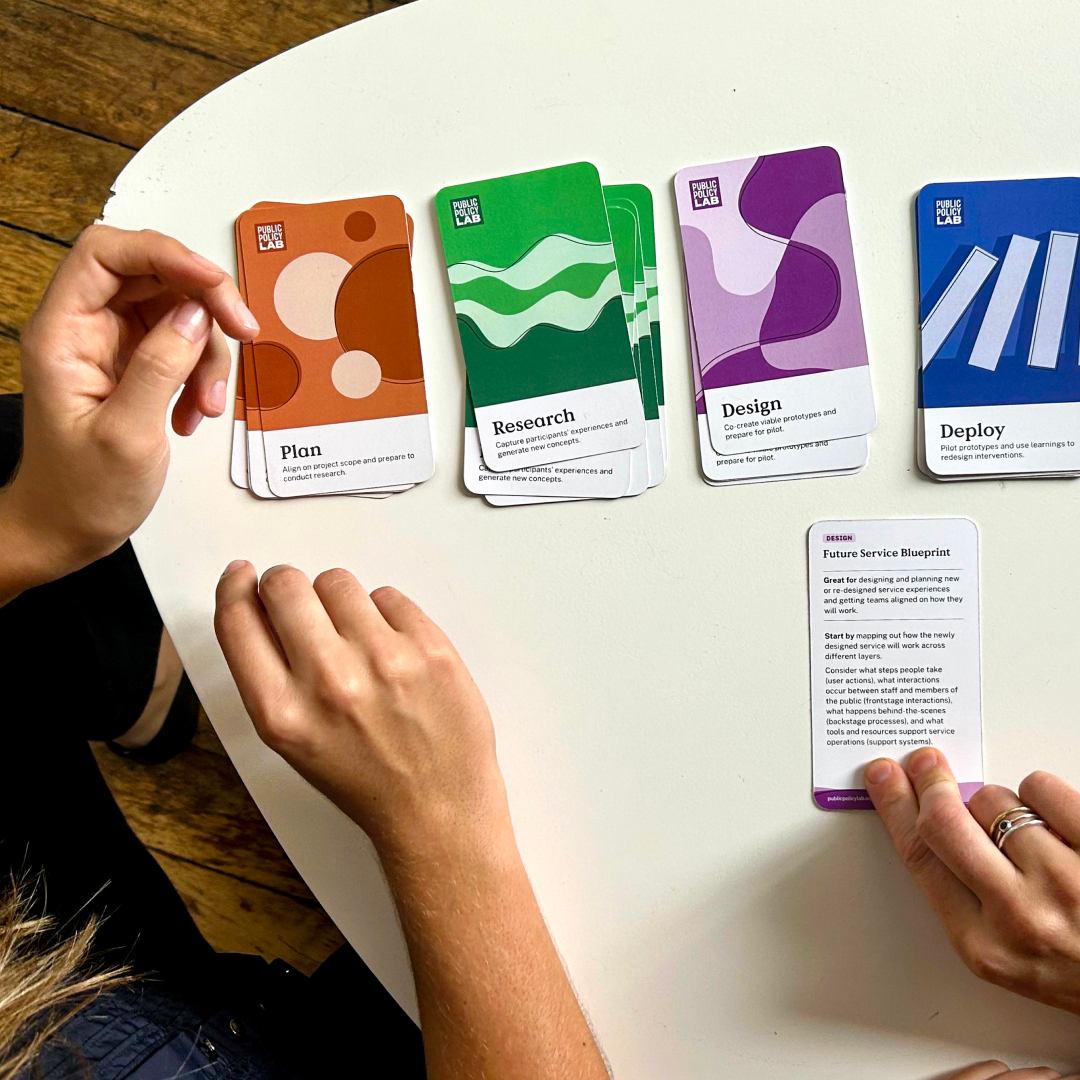
During Plan, teams are focused on aligning stakeholders on a project’s scope and preparing research operations. During this phase, teams are asking:
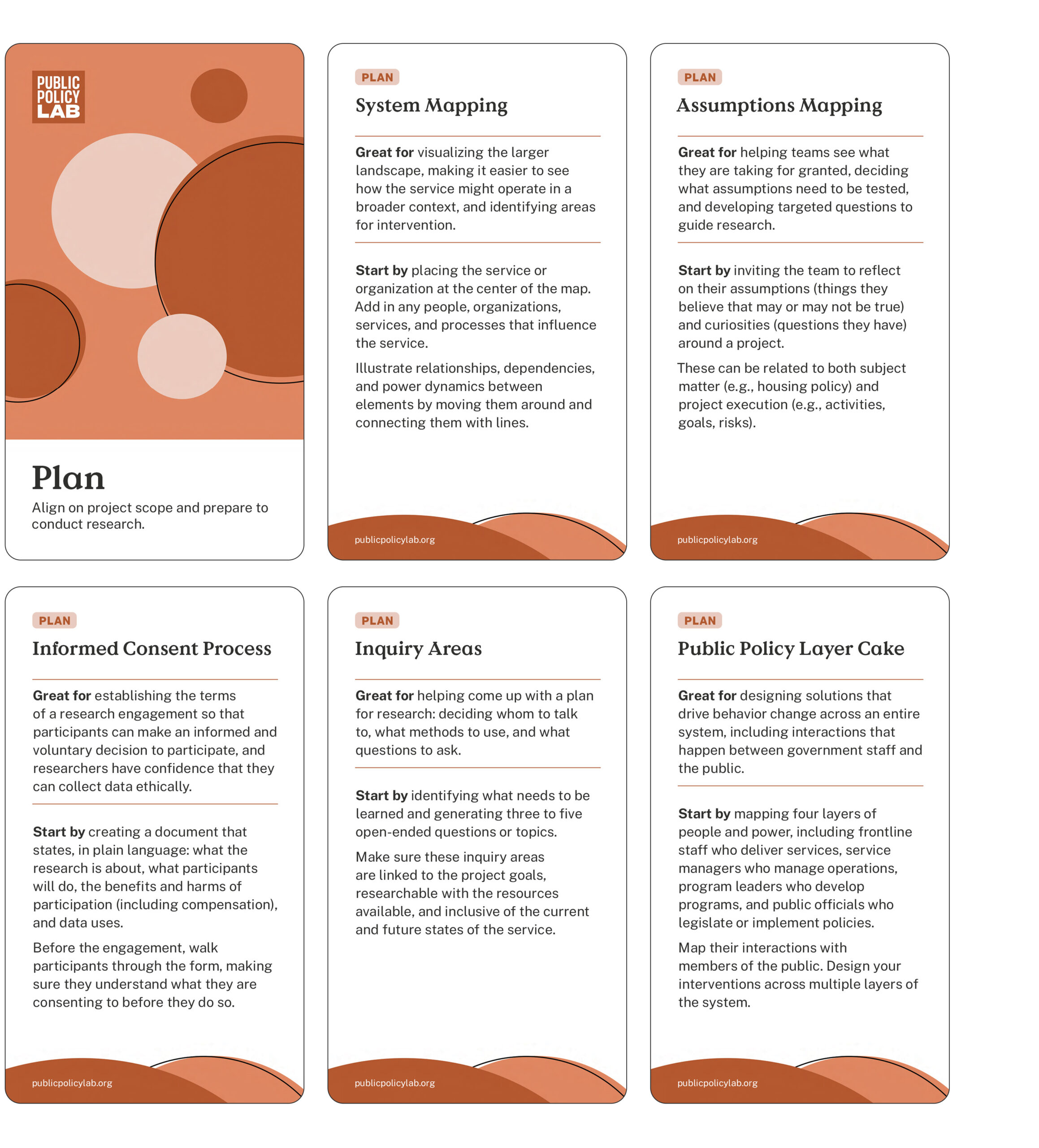
Once teams move on to Research, the goal is capturing participant experiences to generate fuel for design. During this phase, teams are asking:
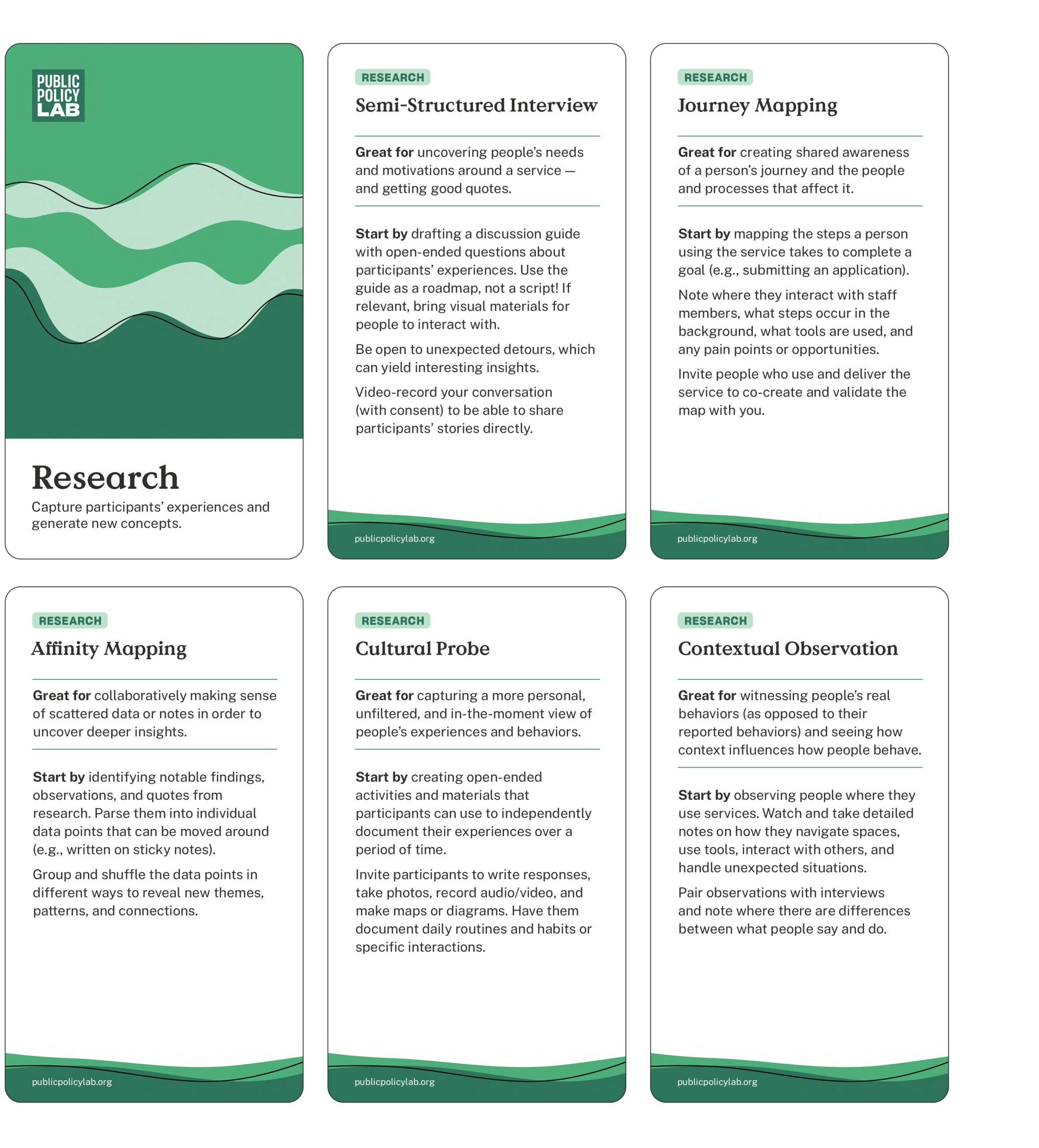
Design centers on co-creating viable prototypes with end-users and providers and building systems and buy-in for implementation. During this phase, teams are asking:
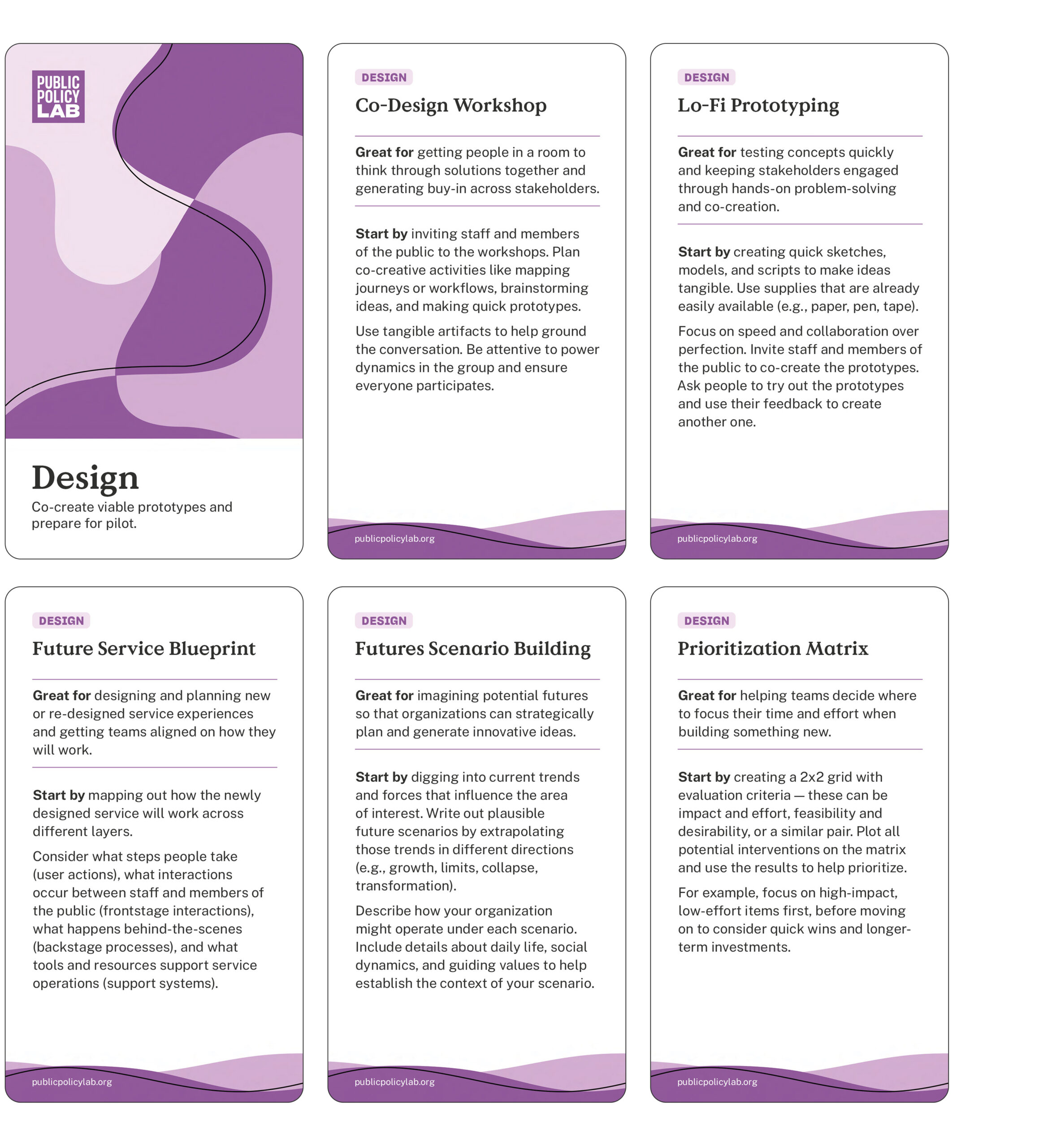
Once we reach Deploy, teams are focused on capturing end-user/provider experiences during initial live implementation and iterating based on learnings. During this phase, teams are asking:
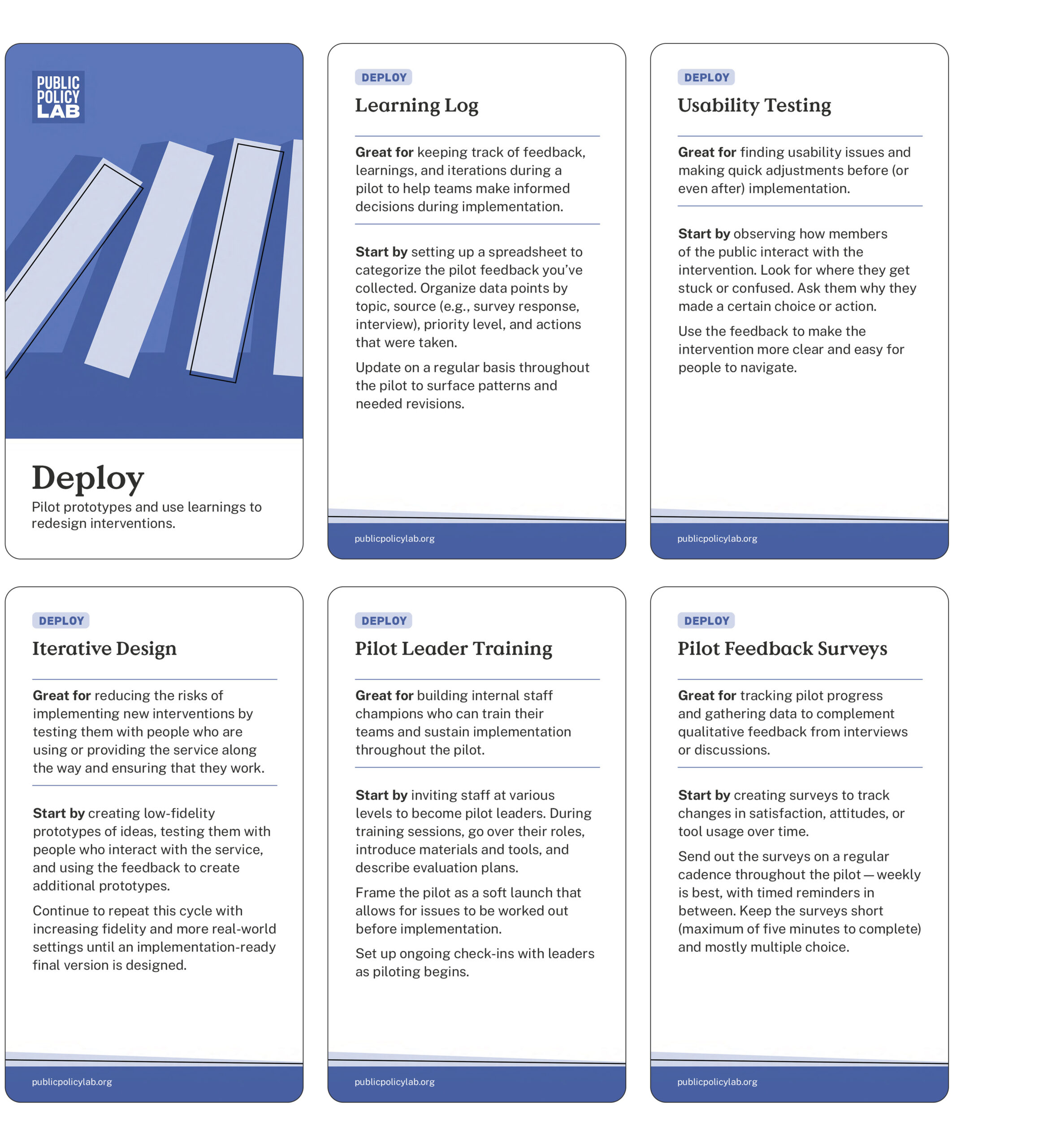
Finally, Scale is all about achieving system integration and supporting scaled implementation. During this phase, teams are asking:
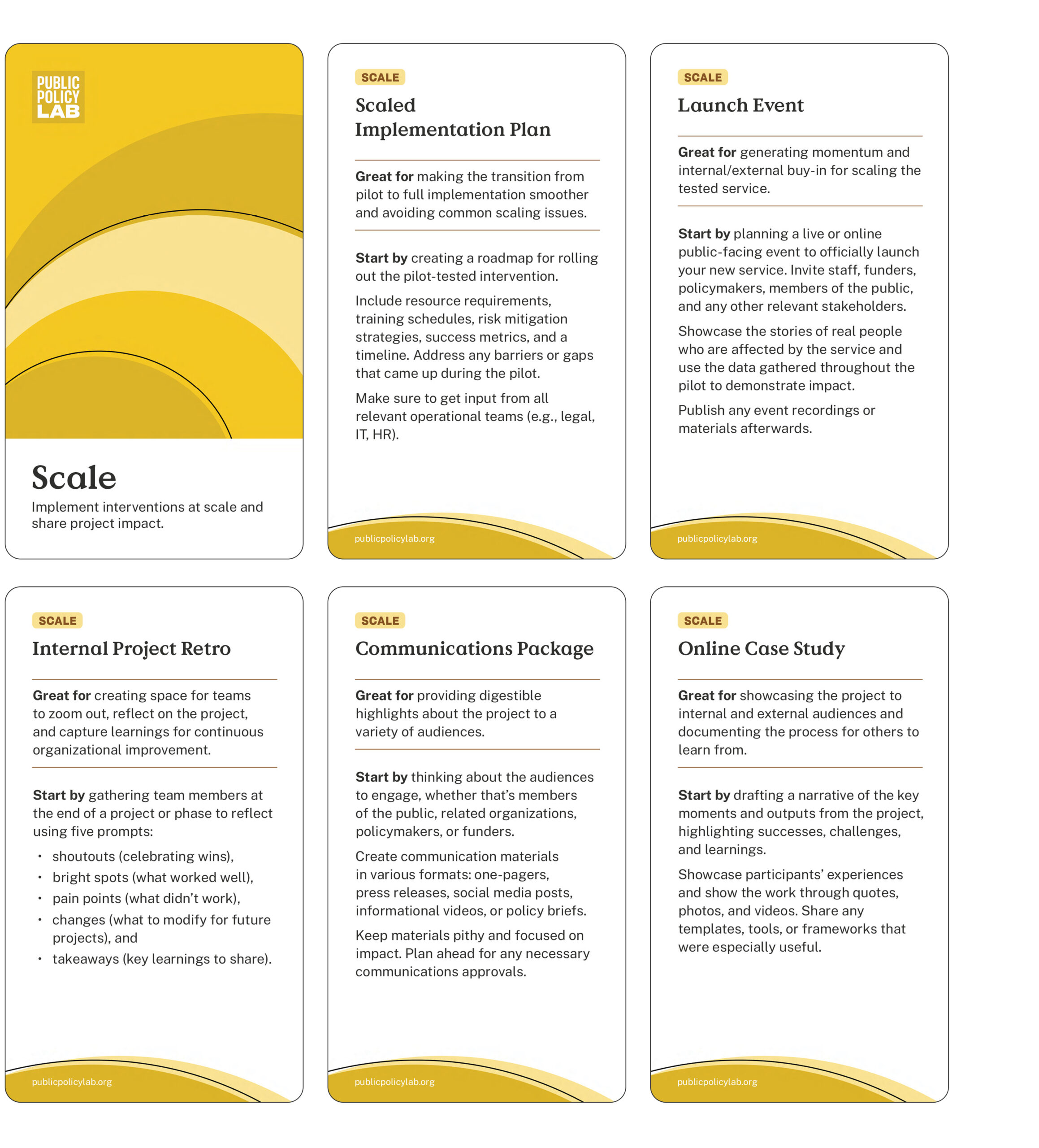
This is just the first version of the deck, and we plan to add more methods and release a full deck soon—stay tuned! If you have any questions about how to use the deck or suggestions about what to include, send us an email at info@publicpolicylab.org. We’d love to hear from you!
Public Policy Lab. Public Sector Service Design Kit. New York, NY: Public Policy Lab, 2025.
PPL is a tax-exempt 501(c)(3)
nonprofit organization.
info@publicpolicylab.org
+1 646 535 6535
20 Jay Street, Suite 203
Brooklyn, NY 11201
We'd love to hear more. Send us a note and we'll be in touch.
We are accepting applications for a Graduate Summer Intern until February 23, 2026.
We're currently seeking applications for a Graduate Summer Intern. If interested, learn more about the role here.
To hear about future job announcements, follow us on Instagram, Twitter, Threads, and LinkedIn or subscribe to our newsletter.
Enter your email below to subscribe to our occasional newsletter.
Wondering what you’ve missed?
Check out our
The Public Policy Lab is a tax-exempt
501(c)(3) nonprofit organization.
Donate now to support our work; your
gift is tax-deductible as allowed by law.